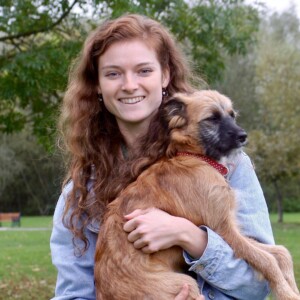
Imogen Mansfield
University of Birmingham
Project
Indicators of Air Pollution-derived Stress in Birds
Supervisors
Prof. Jon Sadler, Dr. Jim Reynolds, Prof. Iseult Lynch & Dr. Tom Matthews
PhD Summary
We will test the hypothesis that birds respond to air pollution through changes in their corticosterone levels and gut microbiome. The limited research on birds that has been conducted to monitor air pollution has often been confined to heavy metal elements, with a focus on seabirds. To the best of our knowledge, no study has attempted to link particulate exposure with corticosterone levels in situ. Another novel element of this research is the use of the bird gut microbiome as an indicator of stress. Ultimately, this work could have positive implications for avian conservation and human health.
What inspires you
Going on a field trip to the Yorkshire Dales when I was 10 years old and seeing Peregrine Falcons for the first time.
Previous activity
An MSci in Environmental Science at the University of Nottingham with a focus on urban ecology and ornithology. After graduating I did two research internships, one with Imperial and the other with UCL. I then received funding to write a paper with Dr Robert Lachlan from Queen Mary University of London, on the vocal individuality of the European Chaffinch.
Why did you choose doctoral research?
I became very invested in my fourth-year research project, which looked at the use of feathers as a bioindicator of heavy metal pollution, and I have therefore created a PhD project which is an extension of this. Ultimately, Doctoral Research will enable me to continue studying the thing that interests me the most – birds!
Why did you choose CENTA?
The workshops, in-depth training of core science skills and the opportunity to join a network of like-minded academics.
Future plans
I believe that this studentship is a creative and exciting opportunity, which will facilitate me to conduct important and novel scientific research. Upon completion of my PhD, I plan to continue working for an academic establishment, with a research focus on urban ecology.
